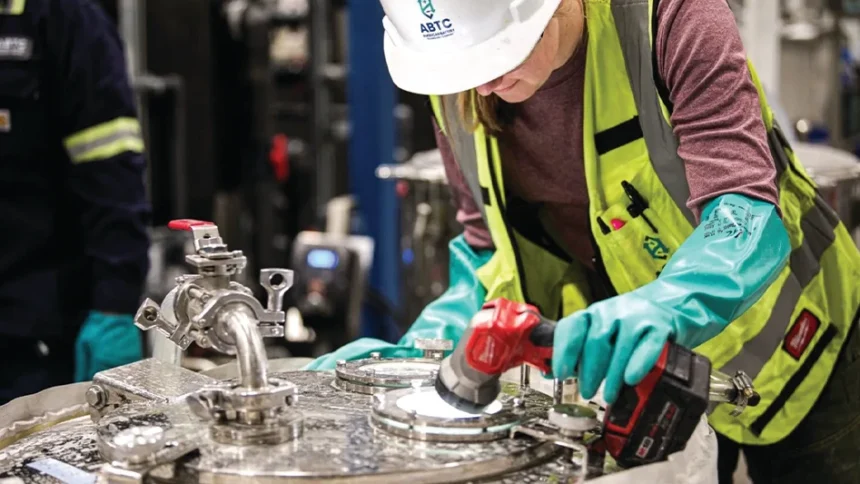The lithium refining business stands at the forefront of the global transition to clean energy. As the demand for electric vehicles (EVs), renewable energy storage, and portable electronics surges, the need for high-purity lithium compounds has never been more critical. This sector is not only pivotal for technological advancement but also offers substantial economic opportunities.
Understanding Lithium Refining
Lithium refining is the process of transforming raw lithium-bearing materials, such as spodumene ore or lithium-rich brines, into high-purity lithium compounds like lithium hydroxide (LiOH) or lithium carbonate (Li₂CO₃). These refined products are essential for manufacturing lithium-ion batteries, which power everything from smartphones to electric vehicles.
The Refining Process
The refining process typically involves several key steps:
- Extraction: Lithium is extracted from either hard rock (spodumene) or brine sources.
- Concentration: The extracted material is concentrated to increase the lithium content.
- Conversion: The concentrated lithium is chemically converted into lithium carbonate or lithium hydroxide.
- Purification: The final product undergoes purification to meet the stringent quality standards required for battery manufacturing.
Innovations in refining technologies, such as Direct Lithium Extraction (DLE), are streamlining these processes, making them more efficient and environmentally friendly.
Market Dynamics and Growth
The global lithium market is experiencing rapid growth. Between 2023 and 2030, global lithium demand is projected to increase 3.5 times, primarily driven by the rapid adoption of electric vehicles and the expanding use of lithium-ion batteries.
This surge in demand presents significant opportunities for the lithium refining industry. Companies that can scale up production while maintaining high-quality standards are well-positioned to capitalize on this growth.
Technological Innovations
Advancements in refining technologies are transforming the industry. For instance, Mangrove Lithium has developed a modular, scalable refining platform that converts lithium chloride and lithium sulfate from various feedstocks directly into battery-grade lithium hydroxide. This electrochemical process eliminates complex and costly steps from conventional refining operations, reducing environmental impact and improving efficiency.
Similarly, Tesla’s lithium refinery in South Texas utilizes a process involving table salt and water, creating environmentally friendlier byproducts used in construction. This approach not only reduces waste but also lowers production costs.
Economic and Strategic Importance
The lithium refining business is not just an economic opportunity; it is also a strategic imperative. Currently, China dominates the global lithium refining market, processing approximately 70% of the world’s lithium. This concentration poses risks to supply chain security.
In response, countries like the United States are investing in domestic refining capabilities. For example, Oklahoma is positioning itself as a new hub for critical minerals processing, including lithium refining, to reduce reliance on Chinese supplies.
Environmental Considerations
Sustainability is a growing concern in the lithium refining industry. Traditional refining methods can be resource-intensive, consuming large amounts of water and energy. However, new technologies are addressing these issues. ElectraLith, a lithium technology startup, has developed a method for producing battery-grade lithium hydroxide without reliance on water, chemicals, or Chinese refineries. This approach not only reduces environmental impact but also enhances onshore lithium processing competitiveness.
Challenges and Risks
Despite the promising outlook, the lithium refining industry faces several challenges:
- Supply Chain Constraints: The global supply of lithium feedstocks may not keep pace with the increasing demand, leading to potential shortages.
- Regulatory Hurdles: Stringent environmental regulations can delay project approvals and increase operational costs.
- Technological Barriers: Scaling up new refining technologies can be capital-intensive and technically challenging.
- Market Volatility: Fluctuations in lithium prices can impact profitability and investment decisions.
Conclusion
The lithium refining business is a cornerstone of the clean energy revolution. With the growing demand for electric vehicles and renewable energy storage, the need for high-quality lithium compounds is set to increase. By embracing technological innovations, addressing environmental concerns, and navigating market dynamics, companies can thrive in this burgeoning industry.
As Elon Musk aptly put it, “Lithium refining is a license to print money.” This statement underscores the immense opportunities within the sector for those ready to invest in its future.
For entrepreneurs and investors, the lithium refining industry offers a chance to be at the heart of the global transition to sustainable energy. With the right strategies and innovations, the potential for growth and impact is vast.
you may also read
The Role of Economics in Business Growth: Key Insights for Entrepreneurs






